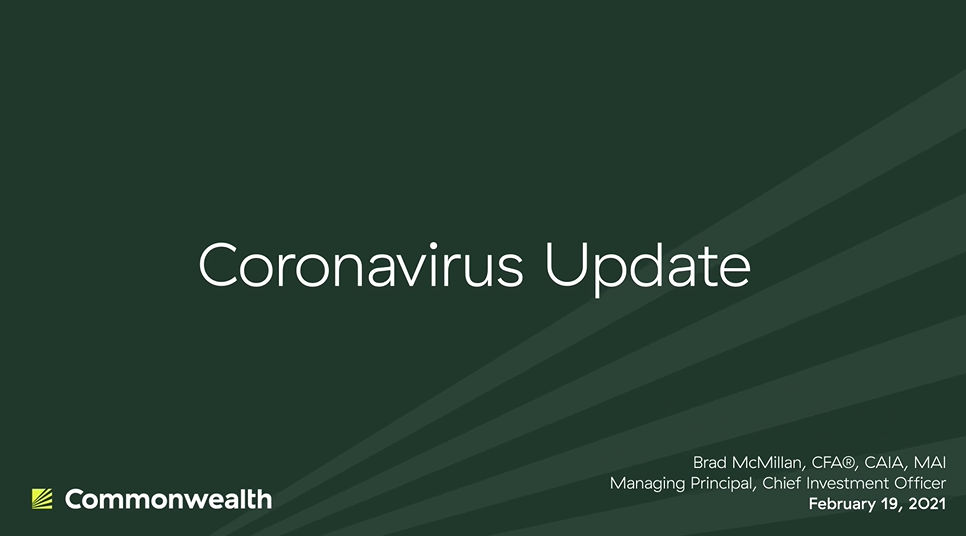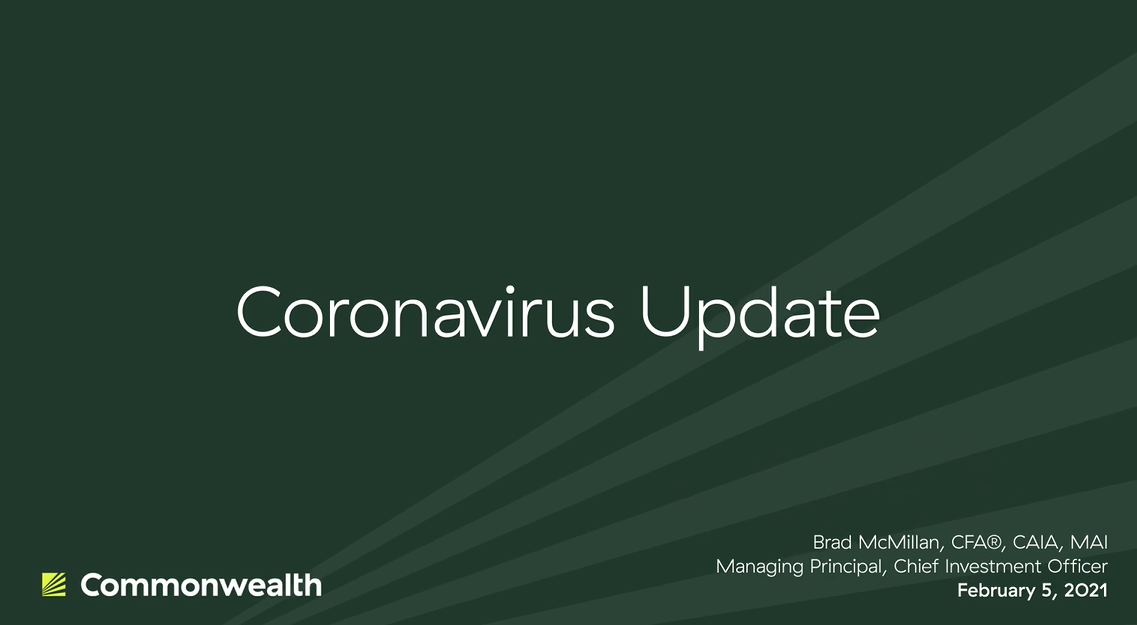Today I'd like to provide an update on the coronavirus, including the economic and market implications. On the medical front, we appear to be well past the peak of the third wave, with daily infection rates and hospitalizations down. A more contagious variant of the virus could start another wave of infections, although there are no signs of that happening yet.















